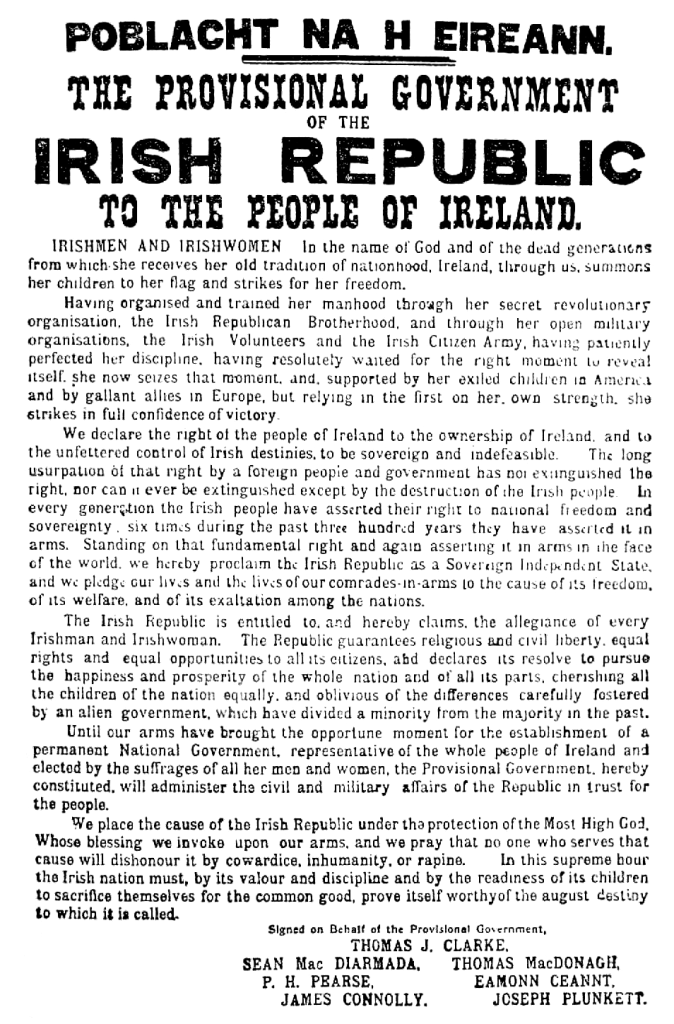Currently in Ireland they are celebrating the centennial of the Easter Rising. On Easter Monday, 1916 a group of Irish patriots seized, by force, multiple sites around the City of Dublin. From the steps of the General Post Office, Patrick Pearse, one of the leaders, read aloud what is now known as the Easter Proclamation. In doing, these rebels declared an Irish Republic.
While the Rising ultimately failed, this is seen by many as the beginning of the the Anglo-Irish War that led, eventually, to partition and eventually a 26 county Republic in the South. The 6 Counties of the North are still under British Rule, leaving the dream of Pease, Connolly and Thomas Clarke, a 32 County Republic, as yet unfulfilled.
Later that year, the poet W.B. Yeats, who had known personally many of the executed leaders of the rising, penned the poem “Easter, 1916.” It ranks as one of my favorite pieces of poetry.
Notes:
The flags the one that was hoisted over the GPO on Easter Monday morning, 1916 when the combined force of Irish Volunteers and Irish Citizen’s Army seized the building on O’Connell Street, making it the first HQ of the Irish Republic.
Note that the Proclamation was addressed to both “Irishmen and Irishwomen.” In fact, women served, in uniform and in combat, during the rising. Also, note Pearse’s initials: P.H. His full name was Patrick Henry Pease, his mother naming him after the American Revolutionary figure and Patriot.


Be First to Comment